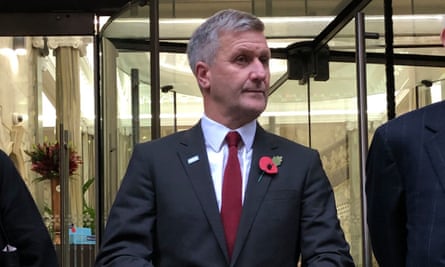A fresh wave of retesting is under way on the blood and urine samples of British cyclists after Richard Freeman, the former British Cycling and Team Sky doctor, was found guilty of ordering banned testosterone for a rider.
The Guardian can also reveal more than a third of all doping samples which the UK Anti-Doping Agency has retested over the past decade have come from British cyclists, making the sport the most retested ahead of athletics.
Since 2011 Ukad has retested 422 blood and urine samples for banned substances – several of them more than once – with 141 retested samples taken from British cyclists.
There has been a significant ramping up of retesting in the past year, after Ukad was criticised for doing less in this area than other anti-doping agencies. Last May it admitted it had reanalysed just 120 samples, including those of 39 cyclists, between January 2011 and January 2020. Since then, however, a further 302 samples have been reanalysed in just 14 months.
The increase is understood to be down to three factors. First, the recognition of the need to reanalyse samples of British cyclists before and after the Freeman verdict; to ensure some historical samples are rechecked before the 10-year statute of limitations ends; and to retest British athletes who have competed at previous Olympics and are set to go to Tokyo.

A Ukad spokesperson confirmed to the Guardian: “Ukad began to store samples for reanalysis in 2011. Over the last 10 years, 422 samples have been retested, including 32 samples that have been analysed more than once. Of those, 141 retested samples were taken from cyclists, with several undergoing repeat testing.”
When asked why it had begun a far more comprehensive retesting programme only in the past 14 months, when other anti-doping agencies had been doing so for years, the spokesperson said: “Comparisons with other anti-doping organisations and their reanalysis rates does not offer an accurate assessment of a successful programme. Ukad’s reanalysis strategy is evidence-based and guided by the support from the scientific community.
“When to reanalyse a sample is a decision which involves consideration of many factors including specific intelligence reports, developments in science and technology to detect prohibited substances, and significant upcoming competitions.”
At the weekend it was revealed Ukad had told British Cycling in 2010 that one of its riders’ samples contained trace elements of the banned substance nandrolone, which could have come from a supplement or nefarious means. It then “green-lighted” British Cycling to investigate the case, although Ukad is said to have no record of what happened next, and the World Anti-Doping Agency has launched an investigation.
When Ukad was asked whether it had subsequently allowed British Cycling to conduct other tests on its riders for substances that would trigger an anti-doping rule violation, it added: “As we are working with Wada on these issues it would be inappropriate to go into any more details at this time.”
A British Cycling spokesperson said of the large number of retests involving its riders: “We place great importance on our partnership with Ukad as it is vital that riders who compete for Great Britain and the wider sport have confidence in the anti-doping system.
“Our work with Ukad is one of a wide range of measures we have introduced in the last five years to ensure the right checks and balances are in place, the most recent of which is the appointment of Dr Nigel Jones as chief medical officer.”
